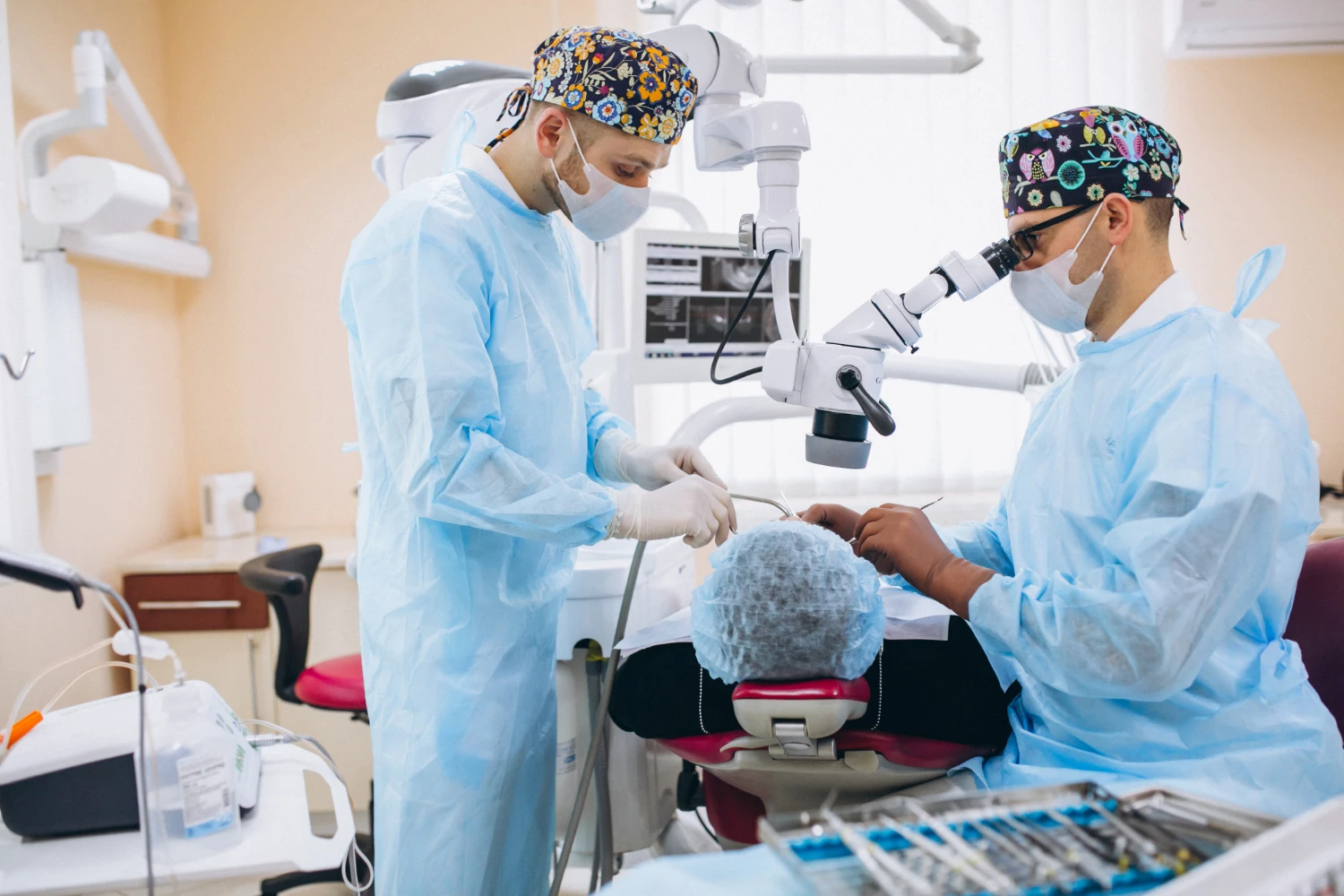These procedures are related to the gums. They are required if a person is suffering from periodontal/ gum diseases. Periodontal diseases are those that affect the gum tissue, causing inflammation, swelling, redness and loss of bone around the teeth.
At Dental Hub, we offer periodontal flap surgeries to treat gum-related issues and afflictions. We also give counselling to our patients regarding proper tooth and gum care, and post-op care as well.
Frequently Asked Questions
What is Flap Surgery in dentistry?
Flap surgery is a periodontal procedure used to treat advanced gum disease. It involves lifting the gums away from the teeth to allow the dentist to thoroughly clean the roots of the teeth and repair any damaged bone. Once the area is treated, the gums are repositioned and stitched back into place, promoting healing and preventing further gum disease.
When is Flap Surgery recommended?
Flap surgery is typically recommended for patients with moderate to severe periodontal disease that has not responded to non-surgical treatments like scaling and root planing. It is often necessary when deep pockets have formed between the teeth and gums, which can harbor bacteria and lead to further bone and tissue loss.
What can I expect during and after Flap Surgery?
During flap surgery, the dentist will numb the area with a local anesthetic and then make small incisions to lift the gums. The underlying tooth roots and bone will be cleaned and treated, and any damaged bone may be reshaped or grafted. After the procedure, you may experience some swelling and discomfort, which can be managed with pain relievers and a soft diet. Full healing typically takes a few weeks.
How effective is Flap Surgery in treating gum disease?
Flap surgery is highly effective in treating advanced gum disease, particularly when deep pockets and bone loss are present. It helps reduce pocket depth, making it easier to maintain oral hygiene and preventing the progression of the disease. With proper care and regular dental visits, the results of flap surgery can be long-lasting.
Are there any risks or complications associated with Flap Surgery?
Like any surgical procedure, flap surgery carries some risks, including infection, bleeding, and swelling. However, these complications are rare and can usually be managed with proper post-operative care. It’s important to follow your dentist’s instructions closely after the surgery to minimize risks and ensure a smooth recovery.

